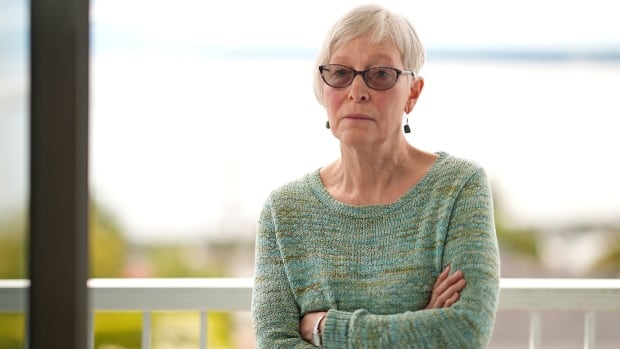Ellen Gould joined the Canadian Association of Retired Persons (CARP) — Canada’s largest advocacy group for older adults — because she considered it a “trustworthy organization” that advocates for seniors’ health.
So when an email arrived from CARP, inviting the Powell River, B.C., resident to take part in a focus group on smoking habits in Canada, Gould was intrigued.
The email said CARP members would discuss “smokeless alternatives” to cigarettes, including vaping products — commonly known as e-cigarettes or vaping pens — which are battery-operated and heat up a liquid solution into an aerosol for inhalation.
But when Gould scrolled to the bottom of an accompanying survey, she discovered the project was funded by Rothmans, Benson & Hedges (RBH), a Toronto-based tobacco company owned by giant Philip Morris International, one of the largest tobacco companies in the industry.
“It is such a shock to me that CARP would be acting as a shill for Big Tobacco,” said Gould. “I just found that so offensive.”
RBH claims on its website that it wants to stop selling cigarettes by 2035 and has shifted its focus to vaping products. They don’t emit smoke, but they do contain nicotine and according to Health Canada, the aerosol can contain potentially harmful chemicals such as formaldehyde, chromium and aluminum.
“CARP should be advocating for smoking and vaping cessation programs, rather than giving Rothmans a new lease on life by promoting vaping to seniors,” said Gould, a public policy researcher who, in 2019, decided to investigate the health effects of vaping devices to help write a smoking and vaping bylaw for her condo building.
A prominent tobacco researcher and health policy expert says CARP’s partnership with RBH lends legitimacy to a company that realizes tobacco cigarettes are waning in popularity and wants more people to vape.
“They’re continuing to try to addict people to their … products,” said Robert Schwartz, executive director and principal investigator at the University of Toronto’s Ontario Tobacco Research Unit.
“How would [CARP] even think about co-operating with a tobacco company.”
CARP declined an interview request from Go Public.
In an email, CARP president Rudy Buttignol wrote that RBH approached CARP about a partnership and the advocacy organization agreed, because smoking “had fallen from view as a societal issue” and it “found the idea interesting.”

Buttignol declined to say how much money the tobacco company provided for access to CARP members.
A spokesperson for Rothmans, Benson & Hedges said in an email that “research of this kind is … legal and appropriate” and that no specific RBH products were referenced as part of the discussion with members of CARP.
Tobacco companies ‘not trustworthy’
An estimated 3.2-million Canadians smoke cigarettes daily, according to the federal government, which also notes that 125 Canadians die every day from smoking-related illnesses — more than the combined deaths from alcohol, opioids, suicides, murders and traffic accidents.
Big Tobacco has a controversial history of downplaying the significant health risks associated with its products.
Back in the 1950s, tobacco companies tried to cover up growing evidence that smoking caused cancer. Some tobacco outfits hired doctors to endorse their products. Other companies falsely promoted “light” cigarettes as being healthier than cigarettes already on the market.
“So, just on principle, they’re not trustworthy,” said Gould. “And [CARP] shouldn’t be getting into these kinds of partnerships if they want to maintain their credibility.”
In addition to still selling cigarettes, RBH is also promoting vaping products and is behind a campaign called “Unsmoke Canada.”

The Unsmoke Canada website calls on governments to recognize “the harm reduction potential” of smoke-free products and change legislation so that those products are not subject to the same regulations as tobacco products.
Currently, smoking and vaping are banned in all public spaces, public transit facilities and workplaces — including restaurants, bars and casinos. Since e-cigarettes don’t burn tobacco and emit smoke, which contains high levels of harmful chemicals, the Unsmoke website argues that changes to legislation are needed.
“We need to work together with the government to create policies that differentiate smoke-free products from cigarettes,” it says.
Schwartz has examined the Unsmoke campaign, and believes it’s just Big Tobacco’s attempt to stay alive by promoting alternatives to cigarettes that he says can also have serious health consequences.
“It’s the tobacco industry using every possible way that it can think of to increase the marketing and the availability of their really dangerous products,” said Schwartz. “And I think that would be a terrible thing if the Tobacco Act no longer applied to e-cigarettes.”
The Tobacco Act was overhauled in 2018, when it became known as the Tobacco and Vaping Products Act and applied many of the existing tobacco regulations to vaping products.
It also prohibited the sale of vaping products to minors and restricted “lifestyle” advertising for vaping products, the use of testimonials, or any reference to e-cigarettes as healthier than standard tobacco products.
Robert Schwartz, a prominent tobacco researcher with the University of Toronto, shares three proven reasons why e-cigarettes aren’t good for non-smokers.
Schwartz has co-authored peer-reviewed research that shows that vaping leads to nicotine addiction and increased respiratory symptoms such as coughing, wheezing and phlegm.
According to Schwartz, there are also “biomarkers of potential serious respiratory disease and potentially cardiac issues and cancer.”
He says research also shows that 85 to 90 per cent of smokers who try e-cigarettes in order to quit smoking do not succeed.
“They either return to being exclusive cigarette smokers, or they become dual users of both e-cigarettes and cigarettes,” he said. “And that’s even worse.”
Schwartz says rather than changing legislation, Canada could be a leader on the vaping issue by making it necessary to have a prescription for e-cigarettes and only giving prescriptions to people who are trying to quit smoking.
CARP funding decline, partnership troubles
According to CARP’s website, the non-profit organization relies on revenue generated from membership fees, subsidies and sponsorships.
When Go Public crunched the numbers from CARP’s financial statements over the past 10 years, it revealed a drop in membership fees of about 25 per cent and a steep decline in sponsorship and other revenues — from almost $1.56 million in 2014 to $199,727 in 2023, an approximate 85 per cent drop.
This isn’t the first time CARP has come under fire from members over a partnership.
Following a deal CARP made with ComparAction, a Montreal-based company that promises savings on long-distance phone calls, the group’s members flooded the organization with complaints. They ranged from members saying they had been signed up for contracts to which they never agreed, to being unable to cancel their memberships after promises of savings weren’t delivered.
The Better Business Bureau’s website says ComparAction has an “F” rating, largely due to “a pattern of complaints concerning sales practices.”
CARP spokesperson Buttignol told Go Public the partnership with ComparAction was terminated in January.
He also declined to say whether the relationship with RBH was going to continue.
The Dose25:29What should I know about vaping?
This week on The Dose, we hear from one expert on what we know and don’t know about the health effects of vaping and how it could help smokers quit cigarettes. David Hammond, a professor in the School of Public Health Sciences at the University of Waterloo, answers some of those questions and more.
Gould says she was so dismayed when she learned CARP had teamed up with a tobacco company that she fired off an email to the organization, cancelling her membership.
“I was really, really furious,” said Gould.
Go Public asked CARP about Gould leaving the organization. In an email, Buttignol wrote, “Shrug. We have about 250,000 members.”
He went on to call Gould “woke” and asked, “Does she quit her family every time she has an argument?”
Gould says she may join a competing seniors’ advocacy organization because CARP has lost her trust.
“You can’t advocate for the well-being of seniors and then get in bed with Big Tobacco,” she said. “That’s a total conflict.”
Submit your story ideas
Go Public is an investigative news segment on CBC-TV, radio and the web.
We tell your stories, shed light on wrongdoing and hold the powers that be accountable.
If you have a story in the public interest, or if you’re an insider with information, contact gopublic@cbc.ca with your name, contact information and a brief summary. All emails are confidential until you decide to Go Public.
Read more stories by Go Public.
Read about our hosts.



